 Petzlover
Petzlover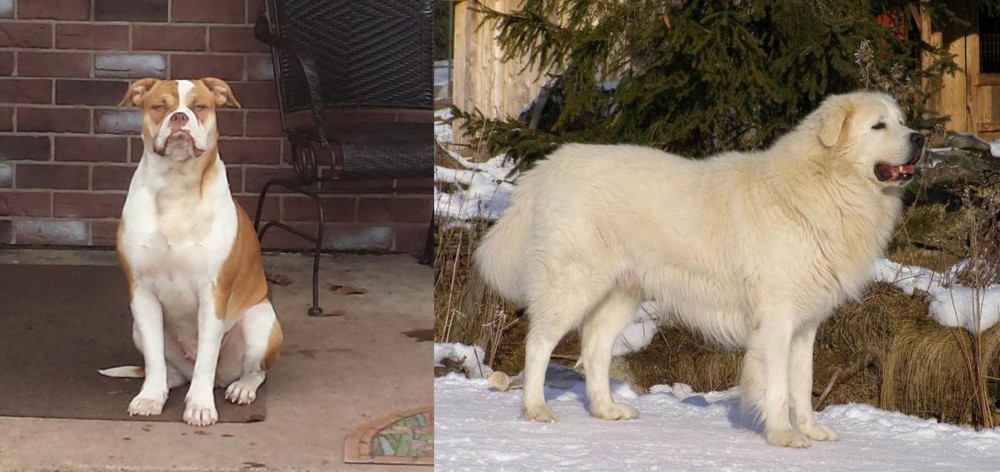 Alapaha Blue Blood Bulldog is originated from United States but Slovak Cuvac is originated from Slovakia. Alapaha Blue Blood Bulldog may grow 9 cm / 3 inches shorter than Slovak Cuvac. Both Alapaha Blue Blood Bulldog and Slovak Cuvac are having almost same weight. Both Alapaha Blue Blood Bulldog and Slovak Cuvac has almost same life span. Both Alapaha Blue Blood Bulldog and Slovak Cuvac has same litter size. Both Alapaha Blue Blood Bulldog and Slovak Cuvac requires Moderate Maintenance.
Alapaha Blue Blood Bulldog is originated from United States but Slovak Cuvac is originated from Slovakia. Alapaha Blue Blood Bulldog may grow 9 cm / 3 inches shorter than Slovak Cuvac. Both Alapaha Blue Blood Bulldog and Slovak Cuvac are having almost same weight. Both Alapaha Blue Blood Bulldog and Slovak Cuvac has almost same life span. Both Alapaha Blue Blood Bulldog and Slovak Cuvac has same litter size. Both Alapaha Blue Blood Bulldog and Slovak Cuvac requires Moderate Maintenance.
 Alapaha has a very interesting history. Their origin dates from one family that lived near Alapaha river in Georgia, in the USA 200 years ago. The family rescued dying breed of Plantation Bulldog. They actually had this breed for 80 years and every dog was named Otto. This breed was not just saved, but the family created a perfect guard dog. Alapaha Blue Blood Bulldog started to expand and by 1980s they spread through the country.
Alapaha has a very interesting history. Their origin dates from one family that lived near Alapaha river in Georgia, in the USA 200 years ago. The family rescued dying breed of Plantation Bulldog. They actually had this breed for 80 years and every dog was named Otto. This breed was not just saved, but the family created a perfect guard dog. Alapaha Blue Blood Bulldog started to expand and by 1980s they spread through the country.
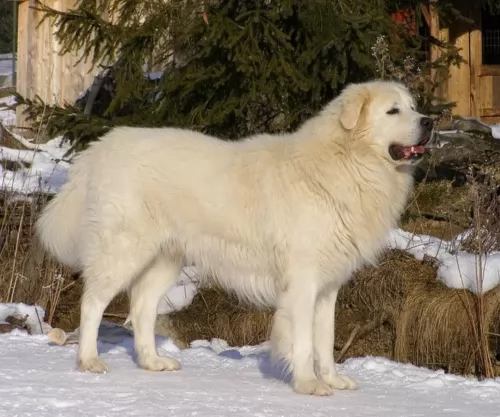 Looking quite a bit like the Pyrenean Mountain Dog, the Slovak Cuvac is a large dog that has served as a guard dog. The Slovensky Cuvac is still used on sheep farms as he isn’t afraid of wolves and bears and will take them on if needs be.
Looking quite a bit like the Pyrenean Mountain Dog, the Slovak Cuvac is a large dog that has served as a guard dog. The Slovensky Cuvac is still used on sheep farms as he isn’t afraid of wolves and bears and will take them on if needs be.
Records of this dog have been kept since the 17th century already, and when the breed started dying out, a certain Dr Antonin Hruza put in efforts to revive the dog.
The registered breeding of the Slovensky Cuvac was established in Czechoslovakia and a club for the dog was established in 1933. A written standard was established in 1964. The dog is not recognized by the Fédération Cynologique Internationale.
 Alapaha Blue Blood Bulldog height is approximately 61 cm, while their weight variates from 34-47kg. Have in mind that females are slightly smaller than males.
Alapaha Blue Blood Bulldog height is approximately 61 cm, while their weight variates from 34-47kg. Have in mind that females are slightly smaller than males.
A lifespan of Alapaha Blue Blood Bulldog is approximately 11-13 years, but it depends from dog to dog, and with proper care, they can live much longer.
Litter Size of this breed depends but average is 4-8 puppies.
Other Names for Alapaha Blue Blood Bulldogs are Alapaha, Otto, Otto Bulldog.
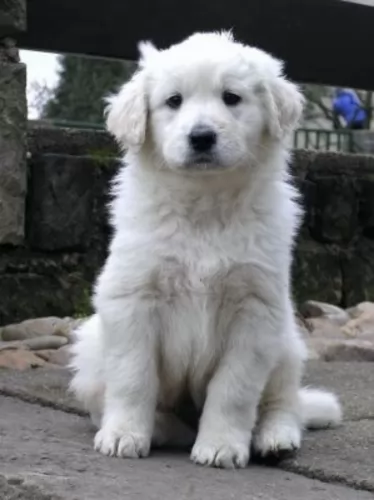 This is a large dog standing at between 59 and 70cm in height and weighing between 31 and 44kg.
This is a large dog standing at between 59 and 70cm in height and weighing between 31 and 44kg.
The neck is broad and has quite a bit of fur around it. The head is large, the eyes dark brown, the double coat is white and thick and medium length. The eyes are brown, the ears medium length and floppy and the tail long and furry.
This is a robust dog, used to spending time outdoors keeping watch over livestock. When he is invited into the home, he is gentle and well behaved, more so when he has been trained and socialized.
He is loving and loyal towards his human family and will get on well with children in the home. He isn’t the brightest dog but you can still have him trained.
 Alapaha breed is not just beautiful and unique breed, but they are also great family dogs. They are very loyal, but also very protective and sometimes possessive. Alapaha will require a lot of attention. It is very important to train your dog properly from the early age. A steady and firm hand is important so if you are first time owner, consider having this breed twice. You should not punish your dog, or implement any types of old-fashioned way of training. They do not respond well to that. Overall, they are very smart and quick learners. Alapaha needs to be socialized with other animals from the early age. They can be aggressive towards dogs that they don’t know. At first, you can train them around the house with family and friends, and after the puppy receives all the vaccines, you can start with socialization with other dogs. If you are first time owner and you want this beautiful breed, you should advise with more experienced breed owner. They simply have more experience than you and they know and understand the puppies, so you will receive more accurate advice. Have in mind that every dog has its own personality. Overall, if you train your dog properly you will have a happy and healthy dog that will be amazing with other animals and especially family members.
Alapaha breed is not just beautiful and unique breed, but they are also great family dogs. They are very loyal, but also very protective and sometimes possessive. Alapaha will require a lot of attention. It is very important to train your dog properly from the early age. A steady and firm hand is important so if you are first time owner, consider having this breed twice. You should not punish your dog, or implement any types of old-fashioned way of training. They do not respond well to that. Overall, they are very smart and quick learners. Alapaha needs to be socialized with other animals from the early age. They can be aggressive towards dogs that they don’t know. At first, you can train them around the house with family and friends, and after the puppy receives all the vaccines, you can start with socialization with other dogs. If you are first time owner and you want this beautiful breed, you should advise with more experienced breed owner. They simply have more experience than you and they know and understand the puppies, so you will receive more accurate advice. Have in mind that every dog has its own personality. Overall, if you train your dog properly you will have a happy and healthy dog that will be amazing with other animals and especially family members.
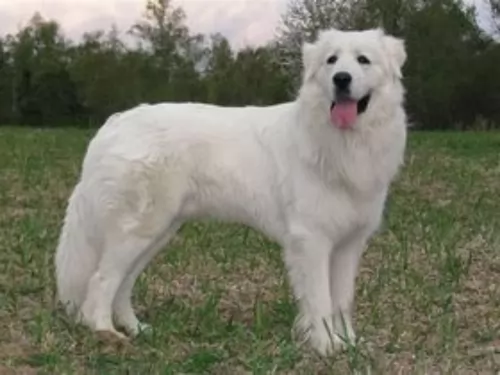 Your playful Slovak Cuvac is an affectionate dog, wanting nothing more than to be totally involved in his family’s life.
Your playful Slovak Cuvac is an affectionate dog, wanting nothing more than to be totally involved in his family’s life.
He is social and loving and also makes an excellent watchdog. He’s a big dog so think carefully before you bring him into your home. Many dog owners like the look of a big dog and forget that it costs a lot of money to feed a big dog and to pay for vet fees.
This big dog is wanting to be part of your family and not just to be discarded when you find that he is costing you too much.
 Almost every breed has health issues. That doesn’t mean that your dog will have the same health problems that are typical of the breed. If you choose puppy carefully, from the right breed owners, and if you take them to the regular vet checks with proper diet, most likely that you won’t be having any problems. Alapaha’s usual health problems are hip dysplasia, congenital deafness, entropion- this is an eye related problem, and sometimes they can have skin problems too. Again have in mind that this breed is very healthy and they do not have as many problems as regular bulldogs. The best way to protect yourself from getting a sick dog, you can require tests from the breed owners. If they are reluctant to do that, or they are assuring you that they have healthy dogs, have in mind that something is probably wrong. It is the best to choose a puppy with someone who has more experience with this breed.
Almost every breed has health issues. That doesn’t mean that your dog will have the same health problems that are typical of the breed. If you choose puppy carefully, from the right breed owners, and if you take them to the regular vet checks with proper diet, most likely that you won’t be having any problems. Alapaha’s usual health problems are hip dysplasia, congenital deafness, entropion- this is an eye related problem, and sometimes they can have skin problems too. Again have in mind that this breed is very healthy and they do not have as many problems as regular bulldogs. The best way to protect yourself from getting a sick dog, you can require tests from the breed owners. If they are reluctant to do that, or they are assuring you that they have healthy dogs, have in mind that something is probably wrong. It is the best to choose a puppy with someone who has more experience with this breed.
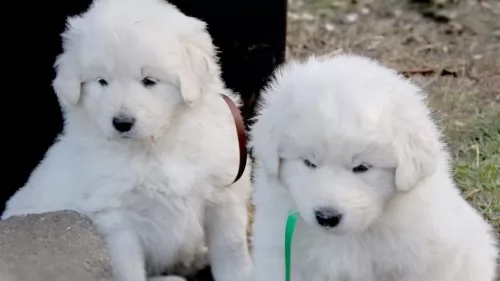 This is a healthy dog breed, but as with many large dogs, hip dysplasia is a threat. Hip dysplasia is always reason for concern as the condition can reduce a dog’s quality of life.
This is a healthy dog breed, but as with many large dogs, hip dysplasia is a threat. Hip dysplasia is always reason for concern as the condition can reduce a dog’s quality of life.
It is distressing seeing your once active pet becoming reluctant to play and move around.
Canine hip dysplasia is a common skeletal condition. It can strike any size dog but is more prevalent with large dogs. The ball and socket of the hip doesn’t fit properly and deterioration sets in resulting in loss of function of the joint.
You will need to get your dog to the vet who will perform a physical exam and discuss treatments to alleviate the pain your dog can experience.
 Feeding of this breed variates on the size of the dog and activity. If your dog is big and very active, you will have to feed it more. Overall, 2-4 cups of high-quality dry food would be enough. It is the best if you divide that into 2 meals per day.
Feeding of this breed variates on the size of the dog and activity. If your dog is big and very active, you will have to feed it more. Overall, 2-4 cups of high-quality dry food would be enough. It is the best if you divide that into 2 meals per day.
If you have a puppy, it is the best to feed it 3-5 times per day in smaller portions. That is the best way to develop your dog into a healthy and happy adult. In the first year, you should feed your dog this way.
Grooming Alapaha dog is very easy actually. They have a short coat, so occasional grooming is all that this breed needs. Of course, you can bath your dog when gets dirty, but not too often. With occasional bath and semi-regular brushing, you will have a perfectly clean dog.
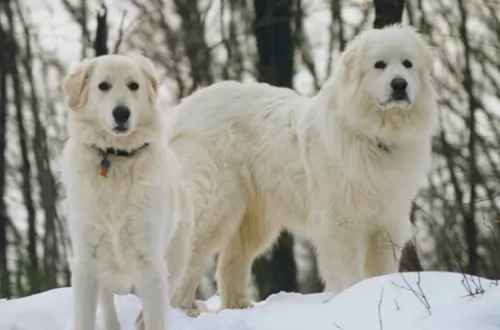 ◆The thick white hair will require regular grooming to keep it free from burrs and dirt. He sheds so this brushing will help him to look more groomed.
◆The thick white hair will require regular grooming to keep it free from burrs and dirt. He sheds so this brushing will help him to look more groomed.
◆The nails should be trimmed regularly and the ears too should be checked for redness and infection. You’ll need to look inside his mouth too as a rotting tooth can cause havoc within his body. A rotten tooth can also cause him tremendous pain and he has no way of telling you this.
◆Have your pet spayed or neutered if you don’t want any puppies. This is better for your dog’s health in the long run too.
◆Your Slovak Cuvac is going to need a lot of exercise as they have always been used to roaming the mountains watching over livestock.
◆This is a big dog so if you buy commercially manufactured food, make sure its for large, energetic dogs. There are good commercially manufactured dog foods on the market – just make sure you buy the best one for your pet to enhance health and longevity.
Try and give him some home made food too. Healthy food which won’t jeopardise his digestion is boiled chicken, brown rice or pasta and spinach, sweet potatoes and carrots. These can all be chopped up and small portions mixed into the dry kibble twice a week as a treat.
Try and include some raw meat occasionally. Your dog will thank you for not giving him exotic people foods which can do lots of harm. Ensure there is always a bowl of fresh, cool water within his reach.